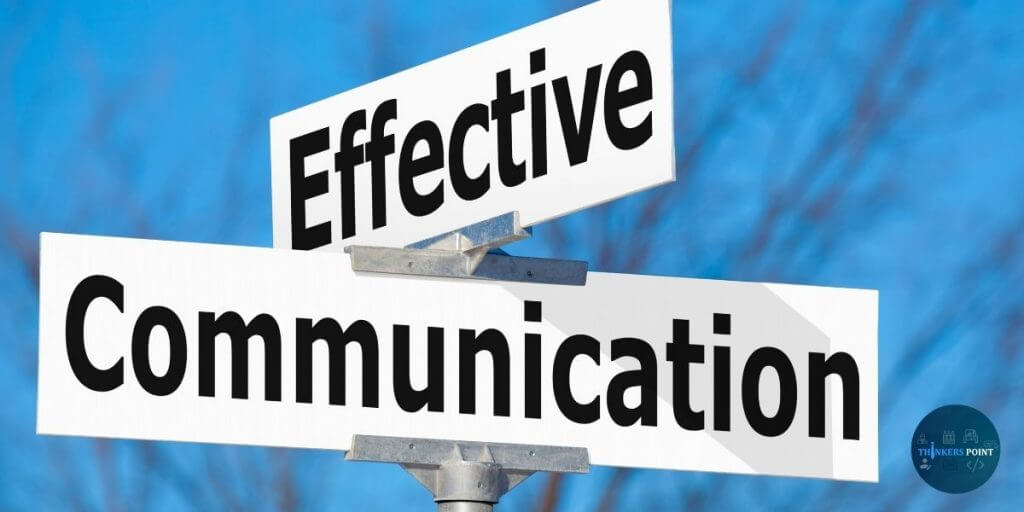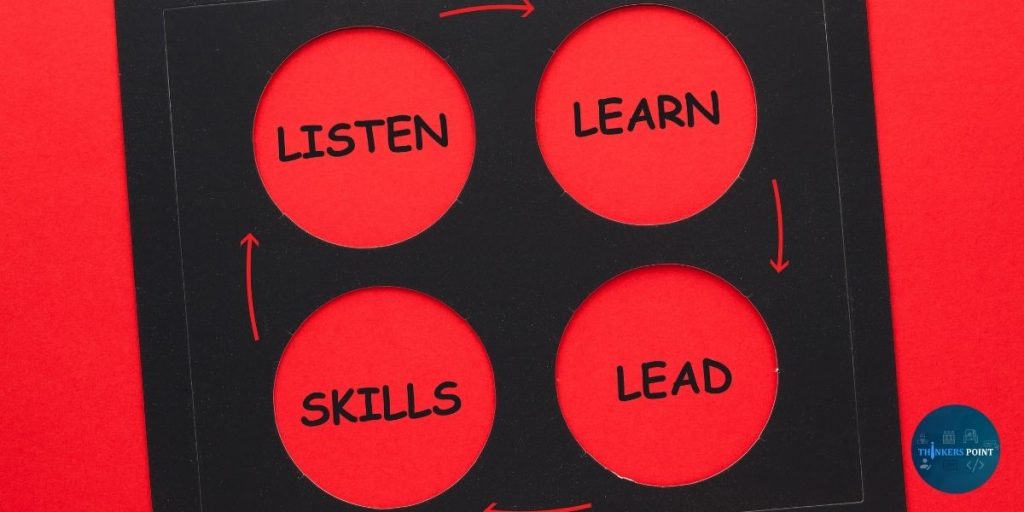Do you want to learn about verbal communication? If someone asks you this question, you would be replying with a ‘yes’ or a ‘no’. This is what is known as verbal communication. Something which is in spoken or written form comes under verbal communication. Communicating (the process of sending and receiving messages) orally (speaking) or by writing is verbal communication.
Going on with the proper definition of verbal communication, the use of words to share information, thoughts or ideas with people orally or in written form is verbal communication. In verbal communication, the sender can be called a speaker or the writer and the receiver can be known as a listener or a reader.
Verbal communication is a part of soft skills, which are way more important for success, rather than hard skills. Soft skills are an important part of one’s personality. Today, almost every job seeker seeks for these qualities – soft skills in your resume.
Verbal Communication at the Workplace

At the workplace or even in your job interviews, it’s your verbal communication skills that outstand you and the job givers are looking for. Many job evaluation is done keeping in view your verbal skills. Keeping aside all the other qualifications, your strong communication skills will provide you with better chances of winning the job or winning at the job.
These days interviews are the big part of the selection process, the better you perform there, the higher chances of you being selected. Regardless of the job positions, the interview is the only doorway you get through it. And, the better your verbal or speaking skills, the better will be your interview and the clearer you will be able to see your doorway.
Not only at the time of the interview, but also when you are employed, verbal skills are needed everywhere between colleagues, top management and the staff, customers, clients, and even between the leaders.
Here, verbal communication takes place in many forms like after your selection, there will be training sessions, in the board meetings, in conferences, presentations, discussions, sale pitches, and many more.
These are some of the very important parts of daily work life and if you lack in this, you may even lack in your performance and even career.
Examples of Effective Verbal Communication Skills at the Workplace

1. Leaders or Bosses or the Top management
They should be assertive in nature, always appreciating their employees or the subordinates for their good performance and give them feedback in a way they can improve themselves, discuss the plans, training them well and knowing their perspectives and expectations.
This is important as this will help grow and build a healthy senior-subordinate relationship and enhance their performance.
2. Teams, Groups and between Colleagues
The members of a team or a group working together, even between the colleagues in an organisation working together should have clear and open verbal communication between them to work effectively and efficiently.
This will help keep them from any kind of misunderstanding and issues. They will be able to work more efficiently individually and altogether. Good verbal communication between team members or colleagues helps increase understanding and build enthusiasm to work. This will obviously be quite beneficial for the company.
3. With Clients and Customers
Especially in the case of sales executives, their verbal communication skills are the most important part of their job. The one to one communication with the clients or the customers, understanding their gestures and expressions, anticipating their needs, persuading them to buy are the important roles that a sales executive should have. This will provide the organisation with good customer relations.
4. Presenters
The presenters play a very important role in the company as they present the company through their presentations. They should be very good in their verbal communication skills, public speaking, interaction with the audience and be confident.
How to make your verbal communication effective?
The effectiveness of verbal communication depends upon a lot of factors like the clarity of the speech or the message, tone and pitch the speaker is using, body language, speed, words.
These factors largely affect the communication as they will give the idea in the mind of the listener or the receiver about the meaning and perspective of the message of the speech.
The speaker must keep his tone high, clear and audible. The sender of the speaker should always cross-check if the receiver has received the message in the way he wanted to.
Effective communication will be the one where the receiver has clearly heard or read your message and has understood it the same as the speaker does.
Not only speaking skills but also listening skills is a major factor when it comes to effective verbal communication. Active listening is also an important factor. How well the audience or the receiver listens to the message is also important as it decides the quality of the feedback and the effectiveness of the communication.
Communication is said to be effective only when the sender has been able to make the receiver understand the perspective behind the message and the receiver has understood it the way the speaker wanted to.
Effective verbal communication needs effective speaking and active listening. Thinking how?

Effective speaking
It is your choice of words, your tone of voice, pace and how well your gestures and body language support your speech. This is so because these factors of effective speaking really affect the communication process like how well the receiver or the audience has understood the message and its intention.
For an outstanding conversation or say to showcase your outstanding verbal communication skills, you first need to make a good choice of words. As in, you need to know which words you can use in a presentation in front of your boss and which words you should omit.
It’s a generic thing, we all know that when we are at work or in some official meeting we make use of formal words only. Informal words can be used only with friends, colleagues and family. Considering this point will surely make the speech or the message look good.
Active listening
It is a major soft skill. It is also a very important part of effective verbal communication. You can never be a good speaker if you are not a good listener. For effective verbal communication to take place it is important that the listener or the receiver is actively listening to you.
This is so because unless and until you listen to the speaker carefully and understand the meaning of the message, you will not be able to clear your queries and give satisfying feedback and complete the process of communication.
There are several ways you can ensure your listening skills like being prepared to listen carefully, try to understand the main point of the message, avoid any distractions, and do not make any judgements beforehand.
Pros of Verbal Communication
- Feedback can be received immediately
- Any issues and misunderstandings can be resolved with effective verbal communication
- A convenient form of Communication
- Clarification can be done easily without any hassle
Barriers to Verbal Communication
1. Cultural Barriers
It can face the difference in cultures and this can act as a barrier. The difference in cultural habits, languages, the same words with different meanings can give false impressions and create misunderstanding.
Businesses can face this type of barrier often, so it is very important for them to understand and learn about different cultures and have a translator for unknown languages.
2. The Size of the Audience
The size of the audience you are dealing with while communicating verbally also affects the effectiveness of communication. The larger the audience, the more difficult it becomes to check if each one of them has understood the underlying meaning of the message of the speech. It becomes difficult to manage each and every audience and conveyor pass the information to them.

3. Active Listening
The skill of active listening is not the case with every individual. Every individual is not a good listener. We know that for effective communication, it is very important that the receiver or the listener actually listens and understands what the speaker is trying to convey.
Active listening is important as it affects the response/feedback of the receiver. To help this, the speaker can make use of certain sentences or maybe phrases that catch the attention of the audience. They can be interactive while speaking and keep their audience engaged and focused.
Types of Verbal Communication
1. Intrapersonal Communication
Intrapersonal type of communication is the one we have with ourselves. Often we struggle with our thoughts like what do I say now, what should I reply or we also have conflicts with our contradicting thoughts, and sometimes we also struggle with the processing of the message, both as a speaker as well as the receiver.
This communication we do with ourselves is also verbal communication that we do with ourselves. It can be shared with others as well as kept secret in our own thoughts.
2. Interpersonal Communication
This type of communication is one to one / face to face communication between two individuals. One of them is the sender or the speaker, the other one is the receiver or the listener.
3. A Small Group Communication
A small group consists of more than two people. This communication involves more than two people. Board meetings, group or team meetings for some discussion, conferences are some of the examples of this type of communication.
4. Public Communication
This type of communication involves a large gathering of people where one person is the speaker and others are listeners.
FAQs
1. Why is it important?
Excellent and effective verbal communication is a key to maintaining successful business relationships. Effective verbal communication between employer and employee also increases job satisfaction level.
2. What are the characteristics of verbal communication?
These characteristics include sound, which denotes pitch, speed, and tone, words, which demarcate a set of symbols that are mutually intelligible between the speaker and the listener.
3. What are examples of verbal communication?
Speeches, presentations and announcements are all forms of verbal communication, as well as casual conversations between friends.
4. What are the functions of verbal communication?
Verbal communication helps us think.
Without verbal communication, we would not function as thinking beings. The ability most often used to distinguish humans from other animals is our ability to reason and communicate.
5. What are good verbal communication skills?
Verbal Communication Skills include –
- Be friendly
- Think before you speak
- Don’t talk too much
- Speak with confidence
- Focus on your body language
- Be concise
6. Why verbal communication is important in health and social care?
Being positive and confident will make patients feel much better than if you are angry or disengaged. Verbal communication is the way you talk to patients and colleagues. Using clear, accurate and honest language will ensure people understand what you are trying to communicate.
7. Why is communication important in a team?
Teams that communicate complete projects in a quicker and more efficient amount of time than others. They also are more accurate in their work than others.
8. What are the disadvantages of verbal communication?
Verbal communication also has a disadvantage of having a short period of longevity. Receivers may quickly forget the message and have difficulty attempting to recall the message. Speakers may need to find a way to make their message more memorable; this may involve the use of a secondary communication method.

